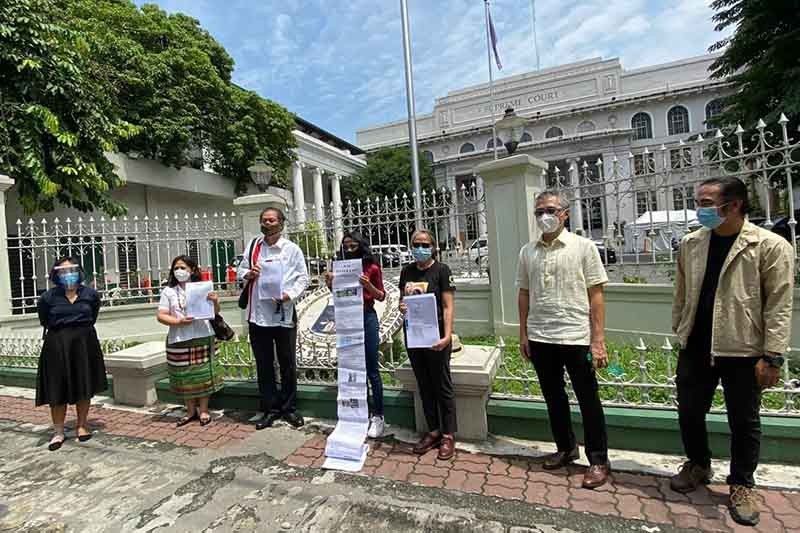Citing long struggle to self-determination, indigenous, Moro peoples assail anti-terror law

MANILA, Philippines — Citing their long struggle to self-determination that may be further endangered with the Anti-Terrorism Act of 2020, indigenous and Moro peoples asked the Supreme Court to nullify the much-feared law.
The group, composed of indigenous and Moro peoples and civil society leaders, urged the SC to declare Republic Act 11479 or the ATA as unconstitutional, citing the laws’ several violations to their rights to free speech, expression and self-determination.
“Just with any vibrant democracy, the democracy, the petitioners herein, seek to make the government more accountable to its people, especially those belonging to the vulnerable sectors, but RA 11479 broad unambiguous provisions has pathologized these legitimate activities,” they said.
Constitutional lawyer and former Ateneo School of Government Dean Tony La Viña serves as the legal counsel of the group.
They stressed that the anti-terrorism law expands enforcement powers and intensify “targeting” of the petitioners who have been red-tagged previously, which would “aggravate the petitioners’ constitutionally guaranteed right to self-determination.”
IPs, Moro peoples struggle to self-determination
The petitioners argued that the anti-terrorism law violates the IPs rights to self-determination as enshrined in the Constitution and would put Moro peoples in “grave insecurity.”
“Inextricably and inexplicably linked to the right to self-determination is the right to oppose, criticize and dissent from development aggression and the policy of militarization that comes with it,” the petitioners said.
The petitioners said that the Philippine legal system “is both a witness and a narrator of indigenous peoples struggle.”
As early as 1919, in the case of Rubi v. Provincial Board of Mindoro, “this Court authorized the forcible displacement of Mangyans from lands they occupied since time immemorial and transfer them to a government reservation under the pain of imprisonment,” they said.
“This historical position of disadvantage along with the government’s neglect to respect and recognize indigenous peoples’ rights [has] often found government and indigenous peoples at opposing ends of huge government projects,” the petitioners said.
“The indigenous peoples assertion of their rights and their consequent opposition to development aggression should never serve as a justification for red-baiting or red-tagging since it is but an exercise of their constitutionally guaranteed rights to self-determination,” they added.
‘Wholesale proscription’
The petitioners also pointed out that the executive branch has too engaged in red-tagging, such as when the state prosecution filed a petition for proscription before a Manila court with 461 names and 188 aliases. United Nations experts were also included in the proscription list.
Three of the petitioners — Beverly Longid, Windel Bolinget and Joanna Cariño – and the organizations they work for were red-tagged under the Human Security Act of 2007 and were included in the “wholesale" proscription case.
The proscription case was primarily filed against the Communist Party of the Philippines and New People’s Army but names of those who are not their members were also submitted by the state prosecution. The state prosecutors later drastically cut down their extensive list to just eight names.
READ: From 649 to 8: DOJ cuts communist terror list | Terror tag still poses threats to individuals even as court cuts down DOJ list — rights group
The petitioners noted that the case did not under undergo verification by the Department of Justice and “proves the red-tagging policy of the government.”
The petitioners stressed that that was not the first and not the last that they, and people with the same advocacy and work will be red-tagged.
“Marginalized sectors such as indigenous and Moro peoples, whose participation in democratic processes ought to be secure when they defend their land and rights or manifest their dissent to policies that further marginalize them, are often met with militarization and violations,” they said.
“The labels ‘terrorist’ and ‘insurgents’ have become the catch-all pretext to legitimize attacks on them. Far from a law that protects, RA 11479 legitimizes the structural violence already perpetuated against them and is repugnant to constitutional values,” the petitioners stressed.
- Latest
- Trending

































